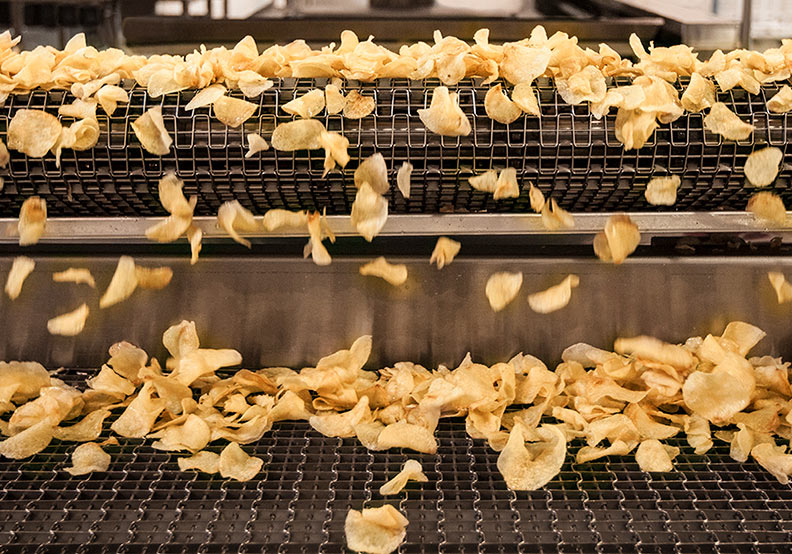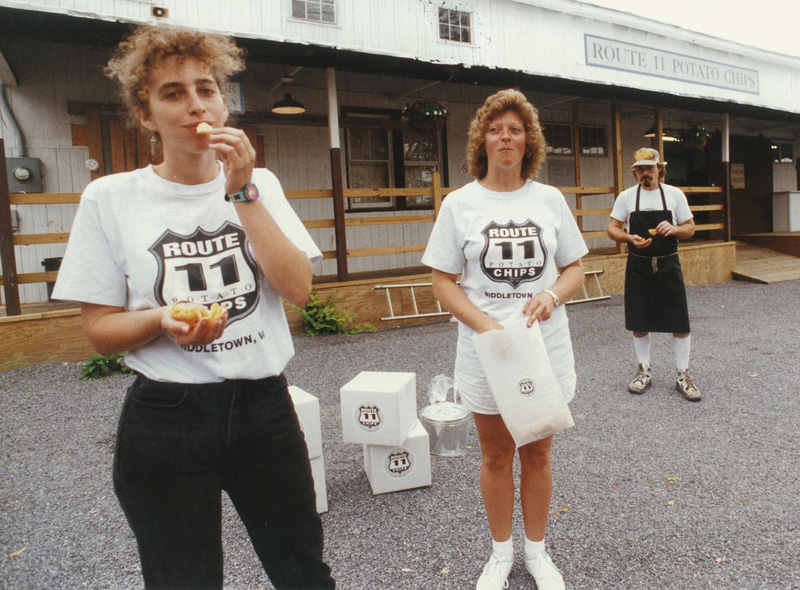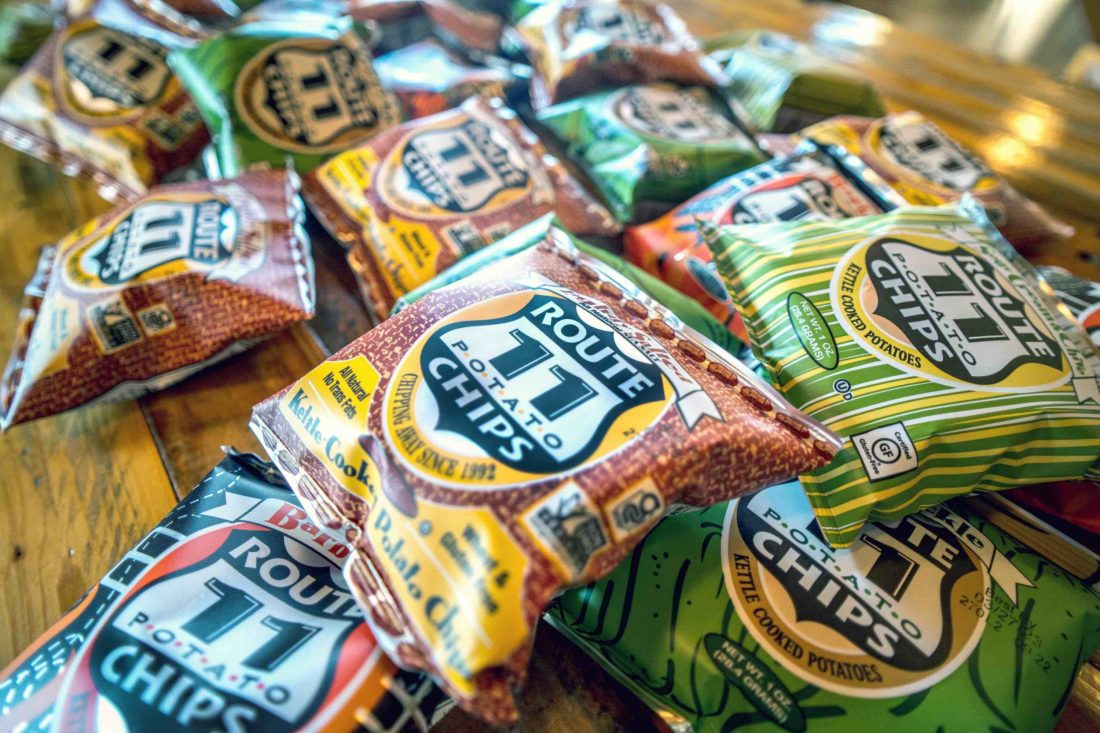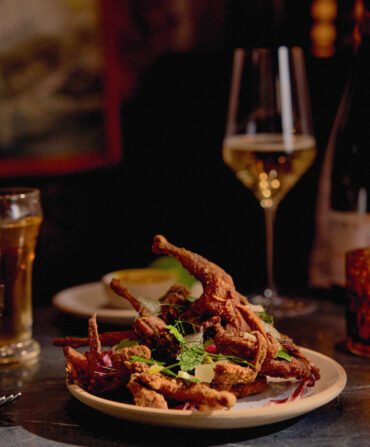We typically don’t think too much about a potato chip’s provenance. Understandable, considering we’re too busy stuffing the next handful into our faces. My relationship with Route 11 Potato Chips, though, is a deeper one. Not only do I know their backstory, sometimes I choose to witness my next delicious bite being made before my eyes.
When it began transforming spuds into snack gold in 1992, Route 11 was a scrappy startup based in a former feed store in Middletown, Virginia. Thirty years and plenty of fan mail later, it operates out of a larger, bespoke facility farther up the Shenandoah Valley in rural Mount Jackson, around the corner from the entrance to the Shenandoah Caverns tourist attraction. But in the universe of snack foods, it remains a small fry, a rare independent in an industry dominated by corporate conglomerates. For comparison, Route 11 can produce about 1,200 pounds of potato chips per hour—the same amount of time it takes Lay’s to crank out 600,000 pounds. (Its modest size also allows Route 11 to source local potatoes in season and send peelings to feed a nearby herd of cattle.)

Potato chips are a straightforward product, but there must be something to this small-batch thing. Perhaps it’s the freshness of the spuds. Or that they’re fried in expeller-pressed sunflower oil instead of the more common canola. Maybe it’s the dusting of all-natural, unrefined salt. The result is peak potato chip, whether your favorite flavor is sour cream and chive, Chesapeake crab, the best-selling lightly salted, or any of seven others.
Also key? Texture. “A great chip has good crunch, without being so hard it breaks your teeth,” says company founder and president Sarah Cohen. “Plenty of curl and a nice golden color also are a must.”

Route 11 chips are available at groceries in the Mid-Atlantic, and beyond at delis and other specialty shops. They also can be ordered online. But when I need to stock up on my favorite flavor, the addictive dill pickle, I swing by the factory on a day when “chipping” is under way. (It’s smart to call ahead to make sure.) The unassuming retail shop is outfitted with large windows and a catwalk that lets visitors view each stage of the process, except for the initial peeling. On the immaculately clean production floor, about twenty hair-netted staffers monitor conveyor belts that usher the potatoes through a slicer/washer and a bubbling fryer before they get seasoned by hand and sorted into bags. The whole thing takes about fourteen minutes, as compared to the thirty seconds of a big brand’s output.
I welcome that fourteen minutes, because they heighten the anticipation felt after requesting a big, unmarked bag directly off the line. Always satisfying, the chips’ assets are amplified while still warm and very, very fresh. That’s why I’ve learned to snag another big bag for the drive home.








